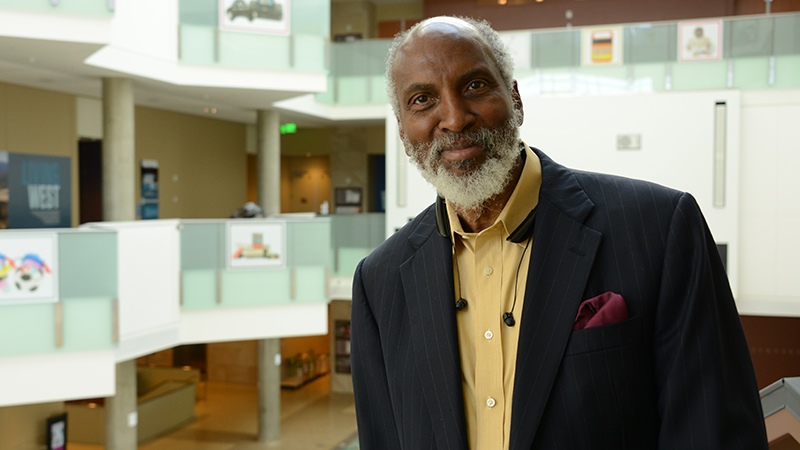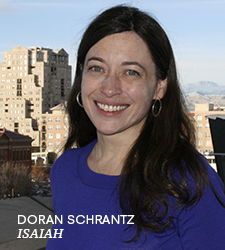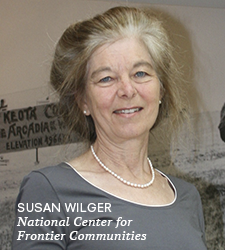Inviting a Sense of Belonging
Leer en español
“Belonging is the greatest gift society can give us,” says john a. powell, Executive Director, Haas Institute for a Fair and Inclusive Society, University of California, Berkeley. Photo by David Cornwell
By Kristin Jones
In a lecture series that was broadcast for gatherings in communities across the state, The Colorado Trust invited experts to shed light on the structures, policies and systems that marginalize vulnerable communities, and describe tactics that allow people to improve the health of their own neighborhoods and towns.
One of the Health Equity Learning Series speakers, Berkeley professor john a. powell, boiled down the social determinants of health to one thing: Belonging. Whether a child has access to high-quality education, how far an employee has to travel to get to work, whether somebody makes enough money to survive, and whether a culture and language are celebrated or marginalized—these are markers that separate those who belong from the others.
Powell, who directs the Haas Institute for a Fair and Inclusive Society, drew direct connections between the unequal opportunities afforded to people of color in America with health outcomes. People of color are not only far more likely than whites to live in high-poverty neighborhoods; they also experience the daily stress of racism that can and does affect physical health. Compared with whites in the U.S., African Americans have a lower life expectancy and are more likely to lose years of their life to heart disease, diabetes, cancer and homicide, among other causes.
Powell proposed that to achieve health equity in America, it isn’t enough to narrow disparities. Instead, he urged a focus on helping everyone achieve a universal outcome of good health. This goal requires us to acknowledge that people face barriers of varying size and intensity, so solutions have to be targeted differently to each group. These targeted solutions frequently come from the communities themselves.
 Another speaker, Doran Schrantz, gave specific suggestions on how to achieve these goals through community organizing. Schrantz, the executive director of ISAIAH, a faith-based group that advocates for racial and economic equity in Minnesota, described a two-year campaign to bring health disparities affecting children of color to the attention of the governor’s office. Through sustained leadership development, postcard-writing, storytelling and public demonstrations, the group earned a meeting with a newly elected governor and an invitation to help shape his cabinet.
Another speaker, Doran Schrantz, gave specific suggestions on how to achieve these goals through community organizing. Schrantz, the executive director of ISAIAH, a faith-based group that advocates for racial and economic equity in Minnesota, described a two-year campaign to bring health disparities affecting children of color to the attention of the governor’s office. Through sustained leadership development, postcard-writing, storytelling and public demonstrations, the group earned a meeting with a newly elected governor and an invitation to help shape his cabinet.
“It’s a shocking example of what can happen when you build enough power,” said Schrantz.
Strategies of building power for the most marginalized groups can be practiced even in very small communities.
 Susan Wilger, director of programs for the National Center for Frontier Communities, described how four impoverished rural counties in New Mexico worked together to address food insecurity.
Susan Wilger, director of programs for the National Center for Frontier Communities, described how four impoverished rural counties in New Mexico worked together to address food insecurity.
“We could only do so much on the county level. Our voice was just too small,” she said. “So we asked ourselves, what if we collaborated as a region?”
They built a collaborative that allowed them to combine funding sources, increase membership and build local support. By working directly with food pantry coordinators, elected officials and public health advocates, they successfully improved the nutritional standards for food donations and increased the frequency of distribution.
“Belonging is the greatest gift society can give us,” powell noted. The Trust’s work is to assure that everyone in Colorado receives that gift.
Watch all of the Health Equity Learning Series presentations.
Video provided by Open Media Foundation